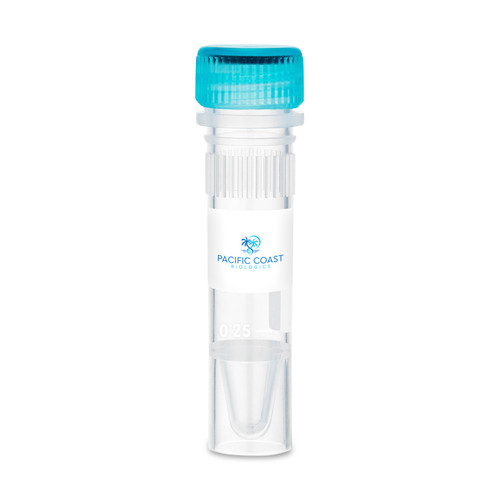IFN-γ, an acid-labile interferon, is produced by CD4 and CD8 T lymphocytes as well as activated NK cells. Its receptors are widespread in immune cells, triggering an increase in class I MHC protein surface expression upon IFN-γ signaling. This enhancement aids in antigen presentation to T-helper (CD4+) cells. IFN-γ signaling in antigen-presenting cells, B and T lymphocytes involved in antigen recognition, plays a crucial role in regulating the antigen-specific phases of the immune response. Moreover, IFN-γ stimulates various functions in lymphoid cells, including the anti-microbial and anti-tumor responses of macrophages, NK cells, and neutrophils. Notably, Human IFN-γ is species-specific and exhibits biological activity exclusively in Human and primate cells. Recombinant Human IFN-γ is a 16.8 kDa protein composed of 144 amino acid residues.
|
Product Specifications
|
|
| Species | Human |
| Published species |
Bacteria, Fish, Human, Mouse, Rat, Virus
|
| Expression System | E. coli |
| Amino acid sequence |
MQDPYVKEAE NLKKYFNAGH SDVADNGTLF LGILKNWKEE SDRKIMQSQI VSFYFKLFKN FKDDQSIQKS VETIKEDMNV KFFNSNKKKR DDFEKLTNYS VTDLNVQRKA IHELIQVMAE LSPAAKTGKR KRSQMLFQGR RASQ
|
| Molecular weight | 16.8 kDa |
| Class | Recombinant |
| Type | Protein |
| Purity |
≥ 98% by SDS-PAGE gel and HPLC analyses.
|
| Endotoxin concentration | <0.1 EU/µg |
| Activity |
The ED50 determined by a cytotoxicity assay using HT-29 cells. The ED50 is 0.26-0.40 ng/ml.
|
| Conjugate | Unconjugated |
| Form | Lyophilized |
| Contains |
no preservative
|
| Storage conditions | -20°C |
CAUTION
For Research Use Only. Not for use in diagnostic procedures.















